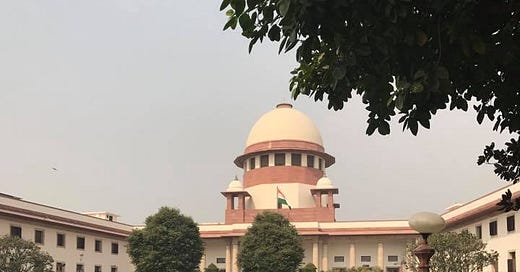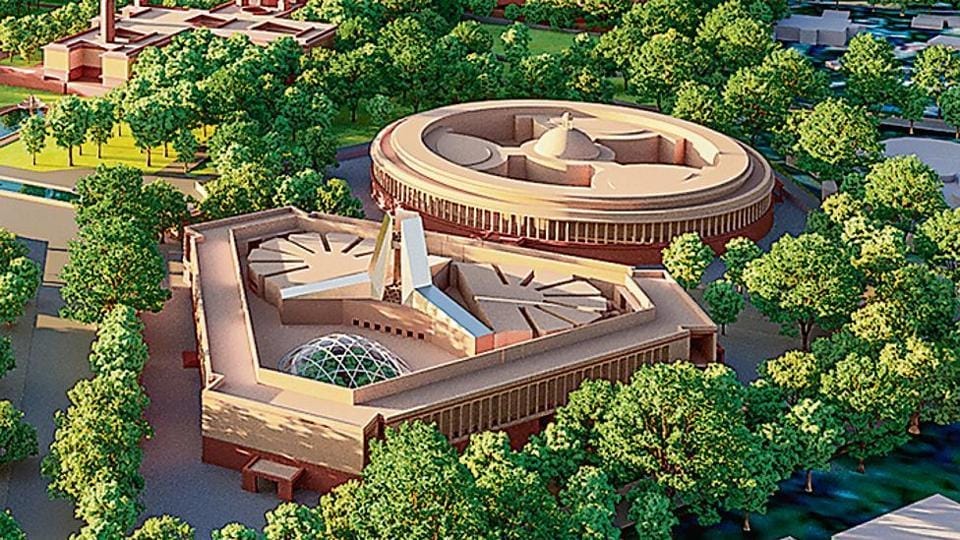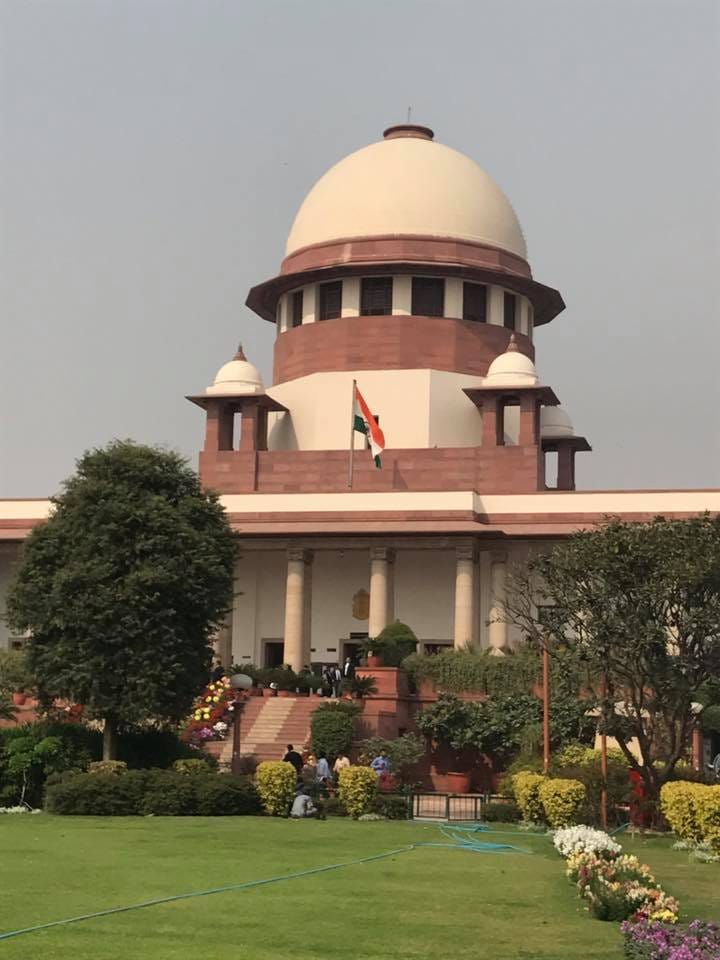Dual system of Criminal Jurisprudence in the offing? Overhaul of the Three Colonial-era Criminal Laws.
Criminal Laws need an overhaul, but let's tread with care. Article 20(1): A Constitutional Check on Transformative Changes in India's Criminal Laws
A Bold Step into Legal Modernity
In the annals of India's legislative evolution, a groundbreaking transition is taking shape. Bharatiya Nyaya Sanhita (BNS) [भारतीय न्याय संहिता] Bill, 2023, Bharatiya Nagarik Suraksha Sanhita (BNSS) [भारतीय नागरिक सुरक्षा संहिता] Bill, 2023, and Bharatiya Sakshya (BS) [भारतीय साक्ष्य] Bill, 2023, emerge not merely as trailblazing legislative endeavours but also as powerful affirmations of India's linguistic heritage and cultural identity, marking a decisive break from colonial vestiges. Yet, when Home Minister Mr. Amit Shah presented these Bills in the Lok Sabha on the final day of the Monsoon Session, it was clear that reforms of this breadth would inevitably face a plethora of challenges. The specific objections highlighted by the Tamil Nadu Chief Minister, which predominantly focused on the Hindi-centric titles rather than the essence of the legislative content, accentuate the nuanced equilibrium India, in its vast tapestry of diversity, must navigate in its pursuit of forward-thinking governance and unified nation-building.
More Stringent Provisions?
The former Congress Party stalwart and Senior Advocate, now serving as a Rajya Sabha MP, Mr. Kapil Sibal, was swift in raising objections to certain provisions within the Bills. This indicates that the ensuing public discourse in the forthcoming weeks might be characterized more by fiery debates than enlightening deliberations. The crux of these debates is likely to revolve around the enhanced powers perceived to be granted to the police and investigative agencies, which may pave the way for unwarranted and indiscriminate arrests. Such powers run the risk of misuse or abuse based on political considerations and extraneous factors. Furthermore, the pressing issues of basic human rights, the imperative for speedy trials, and the need for clear and straightforward bail provisions, pending investigation and trial, will undoubtedly be central to the discourse.
Article 20(1): A Constitutional Check on Transformative Changes in India's Criminal Laws
The forthcoming replacement of time-worn legal pillars, such as the Indian Penal Code, 1860, Code of Criminal Procedure, 1973 (which was not too different from the The Code of Criminal Procedure, 1898), and the Indian Evidence Act, 1872, underlines India's aim to update its legal infrastructure and statutory framework. However, in this fervour for modernity, there lie intrinsic complexities of transition. The cornerstone of this intricate puzzle is Article 20(1) of the Constitution of India, which unequivocally states:
"No person shall be convicted of any offence except for violation of the law in force at the time of the commission of the act charged as an offence, nor be subjected to a penalty greater than that which might have been inflicted under the law in force at the time of the commission of the offence."
The Dual Criminal Administration System: A Looming Challenge
This constitutional safeguard ensures that offences committed before the notification of the new laws are adjudicated under the pre-existing or the then extant legal codes. On the other hand, the new legal stipulations, replete with their updated definitions and nuances, will be pertinent solely to offences post their formal enactment. This scenario throws open the doors to a quandary: Which set of procedural laws will preside over offences, especially those that sit astride the cusp of old and new legislations?
The unfolding tapestry paints a picture of a potential "dual criminal administration system". A foreseeable situation where, for an extended period, the nation might operate under two parallel legal systems. One governed by the older statutes for crimes committed before the new codes and another, charting the course for offences under the new laws.
The Road Ahead: Treading with Caution and Precision
Although the repealing clause in the fresh legislation might aim to clearly demarcate the territories of old and new legal codes, and may even address the handling of ongoing cases, its hands are tied when it comes to contravening the inviolable tenets of Article 20(1). This backdrop necessitates drafting with meticulous attention, especially in relation to repealing clauses, transitional stipulations, and the modus operandi for pending litigations1.
Navigating Nuance in Legal Reformation
While the adage "The King is dead. Long live the King!" elegantly signifies the continuity of monarchies, the realm of law, especially during pivotal transitions, necessitates more than mere succession—it demands meticulous deliberation and forward-thinking. The Joint Parliamentary Committees bear the weighty responsibility of prioritising extensive consultations over hasty decisions.
The ramifications of criminal law administration touch the lives of all citizens. Therefore, the deliberative process must involve an eclectic mix of stakeholders: bar councils and associations, NGOs and human rights organizations, both active and retired police officers and civil servants, the Law Commission, and notably, the State Governments. It's crucial to remember that "law and order" predominantly falls under the jurisdiction of individual states as per the Indian Constitution. The feasibility of either formal or informal consultations with the Supreme Court should also be thoughtfully assessed.
Beyond the Courtroom: Rethinking Corrections and Clemency
Additionally, a reform of such magnitude should holistically consider the entire criminal justice system, encompassing jail administration and related procedures. Matters like remissions, reprieves, premature releases, pardons, furloughs, and the like, which predominantly reside within the purview of the states, must be addressed comprehensively to ensure uniformity and justice in application.
Charting the Path Forward for India's Legal Landscape
In summation, India's pursuit of a rejuvenated legal system is a bold and necessary stride, meriting applause. Such transformative endeavours, however, demand more than just fervour or parliamentary majority; they necessitate an intricate tapestry woven from caution, comprehensive stakeholder engagement, and an unwavering commitment to the bedrock principles enshrined in our Constitution.
We stand firmly in support of the Modi Government's initiative, while also emphasising the indispensability of incorporating bona fide recommendations from diverse quarters. It is worth noting that as the world's largest democracy, India remains under the global lens. Our legislative decisions, particularly those pertaining to criminal justice and human rights, will not only influence our domestic socio-legal fabric but also set precedents on the world stage.
Furthermore, while our focus has primarily been on the criminal legal landscape, it's imperative to acknowledge the plight of the Civil Procedure Code. Equally deserving of attention and reform, the existing framework for civil litigations has, unfortunately, seen cases drag on, sometimes outlasting generations. This not only belies the principle of 'justice delayed is justice denied' but also underscores the pressing need to contemporize the civil adjudicatory process.
The Way Forward
To truly realise a legal system that harmoniously amalgamates India's rich traditions with the imperatives of modern-day governance, a collaborative, transparent, and progressive approach is the way forward. As we embark on this journey of legal metamorphosis, let's be cognizant of our responsibility, not just to our citizenry but to democracies worldwide, setting a precedent that is both inspiring and impeccable.
The similar repealing section of the Code of Criminal Procedure, 1973 is reproduced below for the facility of ready reference. A bare perusal will reveal that this is not a simple provision.
484. Repeal and savings.—(1) The Code of Criminal Procedure, 1898 (5 of 1898), is hereby repealed.
(2) Notwithstanding such repeal—
(a) if, immediately before the date on which this Code comes into force, there is any appeal, application, trial, inquiry or investigation pending, then, such appeal, application, trial, inquiry or investigation shall be disposed of, continued, held or made, as the case may be, in accordance with the provisions of the Code of Criminal Procedure, 1898 (5 of 1898), as in force immediately before such commencement (hereinafter referred to as the old Code), as if this Code had not come into force: Provided that every inquiry under Chapter XVIII of the Old Code, which is pending at the commencement of this Code, shall be dealt with and disposed of in accordance with the provisions of this Code;
(b) all notifications published, proclamations issued, powers conferred, forms prescribed, local jurisdictions defined, sentences passed and orders, rules and appointments, not being appointments as Special Magistrates, made under the Old Code and which are in force immediately before the commencement of this Code, shall be deemed, respectively, to have been published, issued, conferred, prescribed, defined, passed or made under the corresponding provisions of this Code;
(c) any sanction accorded or consent given under the Old Code in pursuance of which no proceeding was commenced under that Code, shall be deemed to have been accorded or given under the corresponding provisions of this Code and proceedings may be commenced under this Code in pursuance of such sanction of consent;
(d) the provisions of the Old Code shall continue to apply in relation to every prosecution against a Ruler within the meaning of article 363 of the Constitution.
(3) Where the period prescribed for an application or other proceeding under the Old Code had expired on or before the commencement of this Code, nothing in this Code shall be construed as enabling any such application to be made or proceeding to be commenced under this Code by reason only of the fact that a longer period therefor is prescribed by this Code or provisions are made in this Code for the extension of time.








